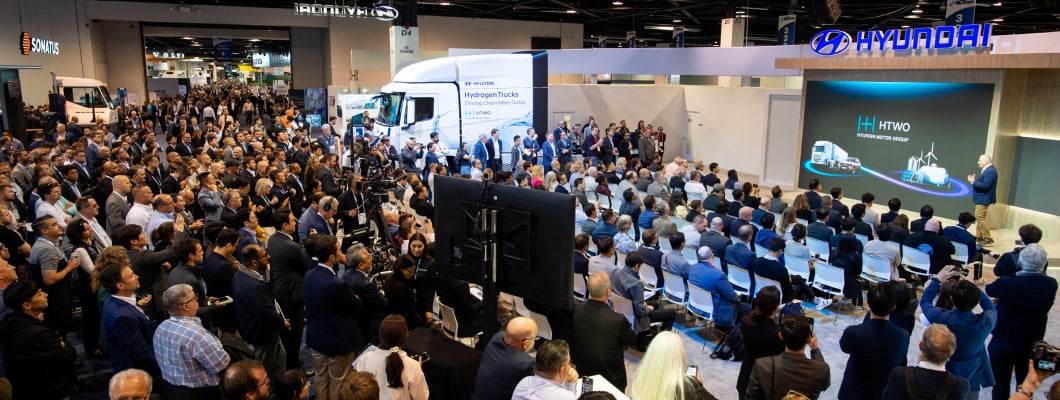Hyliion unveiled its KARNO Power Module, positioning the compact, fuel-flexible generator as a cornerstone of the future distributed energy landscape.
“Today marks a pivotal moment for Hyliion,” said Thomas Healy, founder and CEO, as he addressed a packed audience during the unveiling. “We’ve exited the EV drivetrain space and gone all-in on solving the bigger problem — where the power will come from.”
The KARNO Power Module is a 200-kilowatt generator housed in a compact, stackable format. Its design, according to Healy, is optimized for 24/7 prime power, not intermittent backup use.
“The demand for electricity is exploding,” Healy warned. “Two years ago, I said charging ten electric trucks draws as much power as the Super Bowl. But one modern data center? That’s 100 times that.”
Healy painted a picture of future grid stress that EV fleets will increasingly compete with—from AI-driven data centers to large-scale electrification across sectors. Rather than depending on aging infrastructure — 60% of the U.S. grid is at or beyond its life expectancy — Hyliion sees a better path: generate power where it’s needed.
“Every building has an AC unit outside. Why not have a power generator next to it too?” Healy said.
Among the standout features:
- True fuel agnosticism: The module can run on more than 20 different fuels—from natural gas and hydrogen to syngas and ammonia—and can switch fuels on the fly without shutdown.
- Compact and modular: Roughly half to one-third the size of comparable internal combustion systems. Larger variants up to 2 MW are in development.
- High efficiency: Designed for up to 50% fuel-to-electric (DC) efficiency, a benchmark that rivals the most advanced generators.
- Near-zero emissions: The system achieves >95% reduction in NOx and CO emissions compared to conventional engines—without needing aftertreatment systems.
- Cost-effective power: In many scenarios, electricity from the module is cheaper than grid power, sidestepping demand charges and peak rates.
The KARNO module isn’t limited to EV charging. Hyliion sees immediate opportunity in data centers, remote industrial operations, commercial facilities, and even maritime applications. In fact, the company already has a contract with the U.S. Navy to power future naval vessels using the same core technology.
This article was originally published on ACT News and can be read here.


